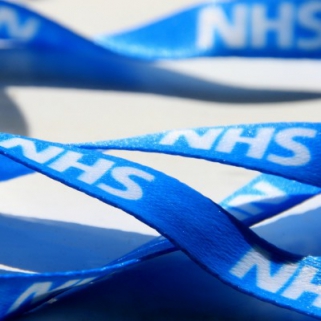NHS Varicose Vein Removal Cutbacks
‘Unnecessary Procedures’ Under Threat
Varicose vein treatment procedures on the NHS are already restricted, but could be cut back further under new cost-cutting plans.
Varicose vein surgery is one of 17 procedures deemed ‘unnecessary’ by the NHS, which means that it will only be offered with very good reason – where the patient meets certain conditions and criteria.
Other issues on the list of ‘unnecessary procedures’ drawn up on consultation with NICE (National Institute of Clinical Excellence) are carpel tunnel, ganglia, eyelid lesions, haemorrhoids, snoring, glue ear, tonsil removal and breast reduction.
The NHS hope that the proposals could save over 100,000 unnecessary procedures a year across the list and believe that alternatives (injections, diet or physiotherapy) will be effective in many cases.
Dr Graham Jackson, co-chair of NHS Clinical Commissioners, explained:
“It is important that we have an honest conversation with the public, patients and clinicians about what can be expected from the NHS within the constrained funds it has available.”
However, critics of the proposals have pointed out that varicose vein treatment can make a really positive difference for patients with leg ulcers. Around 80% of leg ulcers are caused by vein problems, the majority of which are varicose veins.
Alun Davies, a professor of vascular surgery and honorary consultant at Imperial College Healthcare NHS Trust, told the Daily Mail:
“Leg ulcers may sound trivial but they can be extremely painful and debilitating. In some cases, a leg ulcer can even lead to sepsis and death.”
Without surgery, the main forms of treatment for leg ulcers will be compression bandages to encourage blood flow, together with antibiotics in case of infection.
Professor Davies added:
“Although many leg ulcers will heal with compression, without addressing the underlying cause, around 60% will have another ulcer.”
Varicose Vein Surgery Shown to be Effective
Varicose vein treatment has been shown in studies to have a significant impact on healing time of leg ulcers. Professor Davies explains:
“We have shown that by intervening early you improve the healing of leg ulcers, and help a patient recover quicker. We recommend patients are referred to a vascular clinic upon diagnosis with an ulcer, to see if they would be suitable for early treatment.”
So although the NHS is proposing to cut back on varicose vein procedures, experts believe that the NHS could actually save money by treating leg ulcers earlier, while also improving quality of life for patients.
In the meantime, it appears more likely that many patients hoping to get treatment for varicose veins on the NHS face disappointment.
Private Varicose Vein Removal
Many patients are now choosing the private sector for varicose vein treatment, where the latest treatment options are available with short waiting lists.
Cosmedics’ London Vein Treatment Centres offers a completely different experience, with high-tech solutions to get rid of the varicose veins on a day case basis. There is no need for a hospital stay – these procedures are carried out in clinic and patients are able to walk out and return home same day. There is no general anaesthetic, only a local, which also makes the procedure much more agreeable.
Private Varicose Vein Treatment Options
- New ClariVein® treatment combines a mechanical action causing the vein to spasm with a special chemical to seal the vein
- EVLA treatment uses a laser to destroy the veins in question. The procedures takes as little as 20-30 minutes per leg
- Foam sclerotherapy uses a chemical to block and thus destroy smaller varicose veins and larger thread veins
- Micro surgery can be used alongside other treatments to physically remove the troublesome veins
London Vein Treatment Centre
Varicose & Thread Vein Treatment
Cosmedics Skin Clinics offer private treatment for thread veins and varicose veins at their London Vein Treatment Centre. They also offer varicose vein ultrasound scanning for proper diagnosis of any ‘underlying’ vein problems.
For more information or to book a consultation, please complete the form on this web page or call 020 7386 0464.




Leave a Reply
Want to join the discussion?Feel free to contribute!